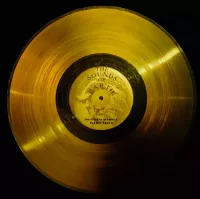Sesame Street is an American educational children's television program that premiered on November 10, 1969. Created by Joan Ganz Cooney and Lloyd Morrisett and produced by Sesame Workshop, it blends live-action, sketch comedy, animation, and puppetry, featuring Jim Henson's Muppets. The show, known for its humor and cultural references, initially aired on PBS before moving to HBO and HBO Max. Sesame Street aims to educate children while entertaining them.
1966: Sesame Street Conceived
In 1966, Sesame Street was conceived during discussions between television producer Joan Ganz Cooney and Carnegie Foundation vice president Lloyd Morrisett, aiming to create a children's television show that would leverage the engaging qualities of television for educational purposes.
1967: Planning for Sesame Street's Development Begins
In 1967, Joan Ganz Cooney and her team began planning the development of Sesame Street, combining research with television production.
1968: Cooney Receives Grant
As a result of Joan Ganz Cooney's initial proposal in 1968, the Carnegie Institute awarded her a $1 million grant to create a new children's television program and establish the CTW.
1968: Joan Ganz Cooney named executive director of the CTW
In 1968, Joan Ganz Cooney was named the first executive director of the CTW and assembled a team of producers.
May 6, 1969: Sesame Street Officially Announced
On May 6, 1969, Sesame Street was officially announced at a press conference. Joan Ganz Cooney, Children's Television Workshop's executive director, detailed that the show would use commercial television techniques to teach young children the alphabet, numbers, vocabulary, shapes, and basic reasoning skills. The show was given an initial six-month run to determine its effectiveness.
November 10, 1969: Sesame Street Premieres
On November 10, 1969, Sesame Street, an educational children's television series created by Joan Ganz Cooney and Lloyd Morrisett, premiered to positive reviews and high viewership. The show combined live-action, sketch comedy, animation, and puppetry and aired on PBS.
1969: Frankie Biondo begins working on Sesame Street
Cameraman Frankie Biondo has worked on Sesame Street from its first episode in 1969.
1969: Casting the First Sesame Street Cast
In Spring 1969, Jon Stone cast the first Sesame Street cast by videotaping the auditions and testing children's reactions. The actors who received the "most enthusiastic thumbs up" were cast.
1969: Initial praise for Sesame Street
Sesame Street was praised from its debut in 1969, receiving glowing reports from newspapers and magazines.
May 1970: Mississippi commission refuses to air Sesame Street
In May 1970, the state commission in Mississippi voted to not air Sesame Street because of its "highly [racially] integrated cast of children" which "the commission members felt ... Mississippi was not yet ready for."
1970: Sesame Street wins twenty awards
In 1970, Sesame Street won twenty awards, including a Peabody Award, three Emmys, an award from the Public Relations Society of America, a Clio, and a Prix Jeunesse.
1970: CTW creates non-broadcast division
In 1970, the CTW established a "non-broadcast" division, which focused on creating and publishing books and Sesame Street Magazine.
1970: ETS's landmark summative evaluation
In 1970, the Educational Testing Service (ETS) conducted one of its two "landmark" summative evaluations, which demonstrated that Sesame Street had a significant educational impact on its viewers.
1971: CTW Hires Hispanic Staff
By 1971, the CTW hired Hispanic actors, production staff, and researchers in response to conflicts with minority groups.
1971: ETS's landmark summative evaluation
In 1971, the Educational Testing Service (ETS) conducted one of its two "landmark" summative evaluations, which demonstrated that Sesame Street had a significant educational impact on its viewers.
1978: Funding Conflict with U.S. Department of Education
In 1978, the U.S. Department of Education refused to deliver a $2 million check (equivalent to $9.64 million in 2024) to CTW until the last day of its fiscal year, leading CTW to depend on licensing and international sales for funding.
1979: Sesame Street's viewership
By Sesame Street's tenth anniversary in 1979, nine million American children under the age of 6 were watching Sesame Street daily.
1981: Federal Funding Withdrawal
In 1981, when the federal government withdrew its funding, CTW expanded other revenue sources, including its magazine division, book royalties, product licensing, and foreign broadcast income.
1982: Death of Will Lee (Mr. Hooper)
In 1982, Will Lee, who played Mr. Hooper, passed away, and the show addressed his death in a storyline.
1985: Release of "Follow That Bird"
In 1985, "Follow That Bird", one of two theatrically released Sesame Street movies, was released.
1987: Writer Burnout on Sesame Street
In 1987, Peter Hellman wrote an article in New York Magazine about the difficulty of finding adults who could write for pre-schoolers. Norman Stiles, head writer in 1987, stated that most writers would "burn out" after writing about a dozen scripts.
1988: Marriage of Luis and Maria
In 1988, the show featured the marriage of characters Luis and Maria.
1991: Rosita's debut
The strong female character Rosita debuted in 1991.
1992: Sesame Street moves to Kaufman Astoria Studios
In 1992, Sesame Street moved its taping location from Manhattan to the Kaufman Astoria Studios in Queens, allowing writers to make last-minute revisions during taping.
1993: U.S. Department of Education survey
According to a 1993 survey conducted by the U.S. Department of Education, out of the show's 6.6 million viewers, 2.4 million kindergartners regularly watched Sesame Street.
1995: Awards and Recognition
By 1995, Sesame Street had won two Peabody Awards and four Parents' Choice Awards. It was the subject of a traveling exhibition by the Smithsonian Institution, and a film exhibition at the Museum of Modern Art.
1996: Preschooler Viewership
A 1996 survey found that 95% of all American preschoolers had watched Sesame Street by the time they were three years old.
1996: Preschoolers Watching Sesame Street
A 1996 survey found that 95% of all American preschoolers had watched Sesame Street by the time they were three.
1998: Corporate Sponsorship Accepted, Boycott Called
In 1998, CTW accepted corporate sponsorship, with Discovery Zone airing advertisements before and after episodes. Consumer advocate Ralph Nader called for a boycott of the show, claiming CTW was "exploiting impressionable children."
1998: "Elmo's World" Created
In 1998, the popular "Elmo's World," a 15-minute-long segment hosted by the Muppet Elmo, was created.
1999: Elmo's World Incorporated
After its 30th anniversary in 1999, Sesame Street incorporated the popular segment Elmo's World due to the popularity of the Muppet Elmo.
1999: Release of "Elmo in Grouchland"
In 1999, "Elmo in Grouchland", one of two theatrically released Sesame Street movies, was released.
1999: Release of "The Adventures of Elmo in Grouchland"
In 1999, Sesame Street released the feature-length movie The Adventures of Elmo in Grouchland.
June 2000: CTW Renamed Sesame Workshop
In June 2000, the Children's Television Workshop (CTW) was renamed Sesame Workshop (SW).
June 2000: Children's Television Workshop becomes Sesame Workshop
In June 2000, the Children's Television Workshop was renamed Sesame Workshop.
2001: Research studies on Sesame Street's impact
As of 2001, there were over 1,000 research studies regarding Sesame Street's efficacy, impact, and effect on American culture.
2001: International viewership of Sesame Street
By 2001, over 120 million people watched international versions of Sesame Street.
2002: Sesame Street Ranked on TV Guide's 50 Greatest TV Shows of All Time
In 2002, Sesame Street was ranked number 27 on TV Guide's 50 Greatest TV Shows of All Time.
2002: Format Change to Narrative Focus
Starting in 2002, Sesame Street's format became more narrative-focused and included ongoing storylines.
2004: Licensing and products become primary revenue source
In 2004, over 68% of Sesame Street's revenue was generated from licenses and products like toys and clothing.
2005: Income from co-productions
In 2005, Doreen Carvajal of The New York Times reported that income from Sesame Street co-productions and international licensing accounted for $96 million.
2006: Sesame Street's global reach
By 2006, Sesame Street had become "the most widely viewed children's television show in the world," with 20 international independent versions and broadcasts in over 120 countries.
2006: International Co-Productions of Sesame Street Broadcast
By 2006, independently produced versions (co-productions) of Sesame Street were broadcast in 20 countries.
2006: Number of Sesame Street co-productions
By 2006, there were twenty Sesame Street co-productions around the world.
2006: Outreach Expansion
Starting in 2006, Sesame Workshop expanded its outreach by creating a series of PBS specials and DVDs focusing on how military deployment affects the families of servicepeople.
2006: Abby Cadabby's debut
The strong female character Abby Cadabby debuted in 2006.
2008: Muppet licensing revenue
By 2008, the Sesame Street Muppets generated between $15 million and $17 million annually in licensing and merchandising fees, which were split between the Sesame Workshop and The Jim Henson Company.
2008: Number of Americans who watched Sesame Street as children
In 2008, it was estimated that 77 million Americans had watched the Sesame Street series as children.
2009: Sesame Street ranked fifteenth-most-popular children's show
By Sesame Street's 40th anniversary in 2009, it was ranked the fifteenth-most-popular children's show on television.
2009: Sesame Street's 40th Anniversary
By its 40th anniversary in 2009, Sesame Street was broadcast in more than 140 countries.
2009: Outstanding Achievement Emmy Award
In 2009, Sesame Street won the Outstanding Achievement Emmy for its 40 years on the air.
2009: Sesame Workshop Wins Peabody Award for sesamestreet.org
In 2009, Sesame Workshop received a Peabody Award for its website, sesamestreet.org.
2013: Sesame Street in Communities Started
In 2013, Sesame Workshop started Sesame Street in Communities, to help families dealing with difficult issues.
2013: Sesame Street Ranked on TV Guide's 60 Best TV Series
In 2013, TV Guide ranked Sesame Street number 30 on its list of the 60 best TV series.
2014: Introduction of Half-Hour Version
Starting in 2014, during Sesame Street's 45th season, producers introduced a half-hour version of the program that complemented the full-hour series, broadcasting it weekday afternoons and streaming it on the Internet.
2015: HBO acquires production rights to Sesame Street
In 2015, HBO acquired the production rights to Sesame Street, granting them exclusive rights for nine months before episodes were released to other networks.
2015: HBO Deal Announcement and Backlash
In 2015, it was announced that HBO would air first-run episodes of Sesame Street due to funding challenges. The move drew criticism for potentially favoring privileged children over the show's original target audience.
2015: HBO Begins Airing First-Run Episodes
In late 2015, HBO began airing first-run episodes of Sesame Street as part of a five-year programming and development deal, which allowed Sesame Workshop to produce more episodes and create spin-off series.
January 16, 2016: Sesame Street moves to HBO
On January 16, 2016, the first run of Sesame Street moved from PBS to the premium channel HBO.
2017: Show Length Decreased to 30 Minutes
In 2017, in response to changing viewing habits, Sesame Street's producers decreased the show's length from one hour to 30 minutes across all its broadcast platforms, focusing on fewer characters and a single backbone topic.
2018: Sesame Street's ranking on PBS Kids
In 2018, Sesame Street was the second-highest-rated program on PBS Kids.
2018: Estimated American Viewership
In 2018, it was estimated that 86 million Americans had watched Sesame Street as children.
2018: Sesame Street Records relaunched with Warner Music Group
In late 2018, the Sesame Workshop announced a multi-year agreement with Warner Music Group to re-launch Sesame Street Records in the U.S. and Canada, making an extensive catalog of recordings available in various formats for the first time in 20 years.
October 2019: First-Run Episodes Move to HBO Max
In October 2019, it was announced that first-run episodes of Sesame Street would move to HBO Max beginning with the show's 51st season in 2020.
November 2019: Augmented reality app released in partnership with Weyo
In November 2019, Sesame Street announced the release of a family friendly augmented reality application produced by Weyo in partnership with Sesame Workshop in honor of the show's 50th anniversary.
2019: Longevity of Sesame Street's Cast and Crew
According to puppeteer Marty Robinson in 2019, longevity was common among the show's cast and crew.
2019: Parent and Celebrity Engagement
By 2019, 80% of parents watched Sesame Street with their children, and 650 celebrities had appeared on the show.
2019: Sesame Street Music Achievements
By 2019, Sesame Street had produced 180 albums of music and its songwriters had received 11 Grammy Awards.
2019: Sesame Street's Global Reach on its 50th Anniversary
By Sesame Street's 50th anniversary in 2019, 190 million children viewed over 160 versions of the show in 70 languages.
2019: Sesame Street's brand awareness
By Sesame Street's 50th anniversary in 2019, the show had 100% brand awareness globally.
2019: Sesame Street Receives Peabody's Institutional Award
In 2019, Sesame Street was given Peabody's Institutional Award for 50 years of educating and entertaining children globally.
2020: Sesame Street moves to HBO Max
In 2020, Sesame Street moved to HBO's sister streaming service, HBO Max.
2020: Move to HBO Max Confirmed
In 2020, first-run episodes of Sesame Street moved to HBO Max for the show's 51st season.
2021: Sesame Street Receives 205 Emmy Awards
As of 2021, Sesame Street has received 205 Emmy Awards, more than any other television series.
2021: "50 Years of Sunny Days" documentary ratings
In 2021, the Sesame Street documentary "50 Years of Sunny Days," which was broadcast nationally on ABC, had approximately 2.3 million viewers.
September 8, 2022: Sesame Street the Musical opens at Theatre Row
Sesame Street the Musical opened at Theatre Row off Broadway on September 8, 2022.
2022: Emmy and Grammy Awards
As of 2022, Sesame Street had won 222 Emmy Awards and 11 Grammy Awards, more than any other children's show.
October 30, 2023: Sesame Street Reimagined Format Announced
On October 30, 2023, it was announced by The Hollywood Reporter that Sesame Street will be reimagined by completely dropping the half-hour magazine-style format in favor of a longer narrative-driven style with more live action Muppet puppet characters. The new format will feature two 11-minute story segments, paired with a new animated series, Tales from 123.
2023: Sesame Street Ranked on Variety's 100 Greatest TV Shows of All Time
In 2023, Variety ranked Sesame Street #12 on its list of the 100 greatest TV shows of all time.
December 13, 2024: Max Will Not Renew Sesame Street Contract
On December 13, 2024, it was announced that Max would not be renewing their contract to make episodes of Sesame Street. 2025 will be the last year for episodes made with Max, and episodes will be in the Max streaming library until 2027.
December 2024: HBO to part ways with Sesame Street
In December 2024, HBO announced it would part ways with Sesame Street.
2024: Grant Equivalent
In 1966, the newly formed Children's Television Workshop (CTW) received a combined grant of US$8 million which equates to $69 million in 2024 dollars.
May 19, 2025: Sesame Street to Air New Episodes on Netflix and PBS
On May 19, 2025, it was announced that Sesame Street would begin airing new episodes on Netflix and would continue to air new episodes on PBS, with new episodes being released on both platforms on the same day, as well as past Sesame Street seasons. This move would also include the acquisition of older episodes by Netflix.
2025: Last Year for Max Episodes
2025 will be the last year for episodes of Sesame Street made with Max.
2027: End of Sesame Street Episodes on Max
In 2027, episodes of Sesame Street will no longer be available on Max.
Mentioned in this timeline
Home Box Office HBO is an American pay television service...

Music is a cultural universal involving the arrangement of sound...
Canada is a North American country the second largest in...

Books are a means of storing information as text or...
PBS Kids is the brand name for children's programming broadcast...

Manhattan the most densely populated and smallest of New York...
Trending

Eileen Gu also known as Gu Ailing is a freestyle skier who represents China in competitions Born in the United...

3 months ago Bitwise Launches XRP ETF Amidst Market Activity; XRP Staking Explored.

7 months ago Heather Watson faces Clara Tauson at Wimbledon 2025: Live scores and updates.
4 months ago Cheryl Hines defends RFK Jr. on 'The View,' clashes with Sunny Hostin.

2 months ago Housing Crisis: Americans Face Trade-off Between Affordability and Safety Amidst Rising Prices.

8 months ago Neymar denies partying image, reveals near participation in Club World Cup.
Popular

Thomas Douglas Homan is an American law enforcement officer who...

Melania Trump a Slovenian-American former model has served as First...

XXXTentacion born Jahseh Dwayne Ricardo Onfroy was a controversial yet...

Jupiter is the fifth and largest planet from the Sun...

Instagram is a photo and video-sharing social networking service owned...

William Franklin Graham III commonly known as Franklin Graham is...